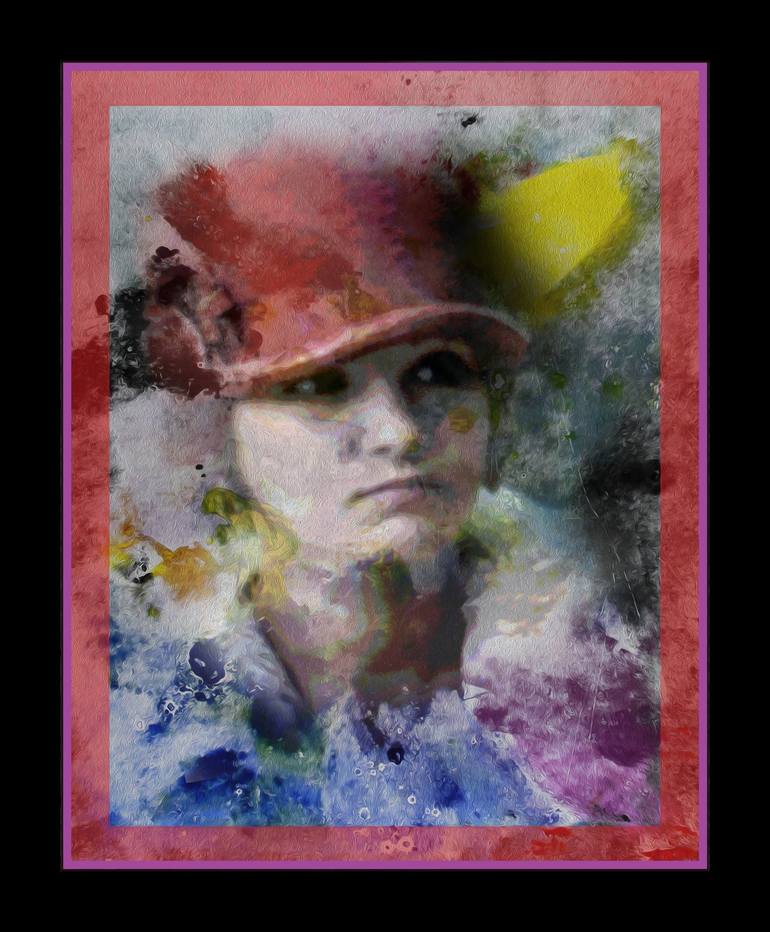


51 Views
0
View In My Room
Printmaking, Monotype on Paper
Size: 40.6 W x 50.8 H x 0.3 D cm
Ships in a Box
51 Views
0
Artist Recognition

Featured in the Catalog

Artist featured in a collection
ABOUT THE ARTWORK
DETAILS AND DIMENSIONS
SHIPPING AND RETURNS
This image starts out as a monotype and is manipulated with new media and is sent to a special company to print on a metallic paper that gives the image extra power and depth. I love making monotypes. The big attraction to me is the huge amount of unpredictability in the process. Basically you put ...
Year Created:
2010
Subject:
Mediums:
Mediums:
Print, Monotype on Paper
Rarity:
Limited Edition of 5
Size:
40.6 W x 50.8 H x 0.3 D cm
Ready to Hang:
Not Applicable
Frame:
Not Framed
Authenticity:
Certificate is Included
Packaging:
Ships in a Box
Delivery Cost:
Shipping is included in price.
Delivery Time:
Typically 5-7 business days for domestic shipments, 10-14 business days for international shipments.
Returns:
The purchase of photography and limited edition artworks as shipped by the artist is final sale.
Handling:
Ships in a box. Artists are responsible for packaging and adhering to Saatchi Art’s packaging guidelines.
Ships From:
United States.
Need more information?
Need more information?
Richard Arfsten
United States
I have an ambitious approach to life ... and to art ... make something happen every day ... but most of all have fun doing it! A sculptor first, and now working in 2D, I do my best to do just that. Presented here are examples of some of my work. •• My sculpture runs the gamut from abstract, to figurative, to architectural. The materials and methods used are diverse ... from figures modeled in clay or wax, then cast in pewter or bronze ... to aluminum maquettes (produced by evaporative pattern casting) which serve as the 3D blueprints for the pieces that are enlarged and fabricated from sheet metal of all kinds. •• My 2D pieces range from abstract to figurative. You’ll find Originals done in oils or acrylic, one-of-a-kind monotypes, collages, mixed media paintings, and more ... I love working in all mediums. Some of my 2D work may be available as reproductions on this site. ••• MY FASCINATION WITH SCIENCE FICTION & MAKE BELIEVE - When I was in second grade, television was new and the hottest thing. The "Adventures of Flash Gordon" was my favorite program. There was only one kid in the neighborhood who had a TV. We, all the kids, gathered at his house for every episode. I was a huge fan of the characters. Flash was cool and my hero. Dale Arden was OK but Princess Aura was way cooler because she was naughty. Ming The Mercilous was very interesting. But Dr. Zarkov and his super duper telescope - that could see into time forwards and backwards, far and near - was the star of the show for me. The spaceship was really hoakey. You could see the wire that it was traveling on and the little puffs of smoke coming out of it were a joke, even for me. But the concept of the show was magical. Also at that time there were radio shows about space travel and aliens and monsters. I would listen to those shows with my grandfather as I sat on the floor next to the big wooden box radio so I could get the full impact of the sounds. •• These shows inspired me to draw spaceships, mostly "new and improved" versions of Flash's ship. I taped them all over my bedroom walls. At night I would travel with Flash. We would go to distant parts of the Universe and explore ancient ruins - like what I saw in National Geographic when I was not looking at the bare-breasted girls of exotic cultures. (I think artists and sculptors, are to a large part, voyeurs.) Those memories pop up in my art over and over. •• Faces also intrigue and inspire me.
Artist Recognition

Featured in Saatchi Art's printed catalog, sent to thousands of art collectors

Artist featured by Saatchi Art in a collection
Why Saatchi Art?
Thousands of
5-Star Reviews
We deliver world-class customer service to all of our art buyers.
Global Selection of Original Art
Explore an unparalleled artwork selection from around the world.
Satisfaction Guaranteed
Our 14-day satisfaction guarantee allows you to buy with confidence.
Support Emerging Artists
We pay our artists more on every sale than other galleries.
